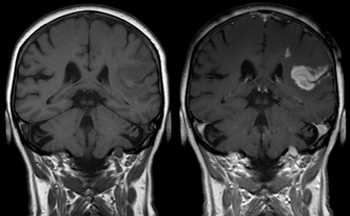'Memory and the Brain: Using, Losing, and Improving' a Book Review by Brenda Walker
25th February 2025
23rd Aug 2016
 New research published in the journal PLOS ONE describes how mice given the omega-3 fatty acid DHA had less brain damage and better brain function than controls. The effects were not seen with a different omega-3 fatty acid, EPA.
New research published in the journal PLOS ONE describes how mice given the omega-3 fatty acid DHA had less brain damage and better brain function than controls. The effects were not seen with a different omega-3 fatty acid, EPA.
Prior to treatment with the fatty acids the 10-week-old mice had been incurred a hypoxic-ischemic brain injury, the type of injury that occurs during a stroke (see image).
These findings suggest that the omega-3 fatty acid DHA has the ability to protect brain cells agains the damage caused by a stroke-like event, or the interruption of blood flow and oxygen supply during or shortly after birth which can cause brain damage in newborns.
EPA and DHA are bioactive omega-3 fatty acids that are found in oils extracted from cold-water fish and are present in the diet in certain foods and supplements. Other studies have shown that these fish-oil fatty acids protect organs and cells in numerous ways after oxygen deprivation, reducing inflammation and cell death.